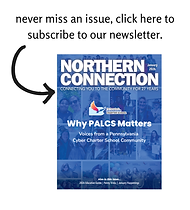Navigating Sweater Weather’s Food Climate
- Laura Piotrowski Arnold
- Oct 30, 2025
- 3 min read
Giving the Incoming New Years Resolution -- a “Revelation”
By Elexis Kozik, Registered Licensed Dietitian – Revelations Counseling and Wellness

‘Tis the season for more of our Favorites – Football, Family, Friends, Food, Fellowship, and Faith. It’s that time of year again where we swap landscaping for leaf raking, sunny rays for snowy days, and our summer trips for classic movie marathons.
Our schedules adjust to make room for holiday activities, family traditions, and memory building. This is a time of year when many have the chance to be present, to reflect, and to express gratitude for the things in life that mean the most. In other words, to be mindful. However, many experience a mind full of anticipation for the back-to-back gatherings and for the snowball effect this can have on overindulgence of food. Those eager to start or maintain wellness journeys tend to experience added stress, anxiety, shame, and guilt with this new change of pace and all the food-tivities to come.
Concerned You’ll Bite Off More Than You Can Chew? Here are a Few Suggestions:
Give yourself grace: Your concern is valid! You want to maintain a balance, and that is a commendable thing. However, know that an important part of maintaining balance is making peace with food and normalizing those occasions where you go outside of your typical routine.
Splurging on occasion does not mean that you have failed to maintain your “wellness”; it means that you have succeeded. Incorporating flexibility (within identifiable limits) into your dietary plan promotes less rigidity and greater adherence in the long run.
Silence the noise: Steer clear of diet culture and food myths that promote fasting before feasting. It is best to eat well-balanced, portion-controlled meals prior to your scheduled festivity. By doing this, you create less of a fixation and hyperfocus on the “feast” to come, and less of a tendency to trade a comfort food experience for an uncomfortable experience.
This prevents the cyclic nature of restrictive eating and overeating many experience throughout the holidays that contribute to undesirable weight gain.
Game plan: Take a survey of the table spread/variety before you start plating your food. Decide what you plan to “savor,” “sample,” “skip,” or “serve.”
Savor foods that you plan to get a sizable helping of.
Sample foods that you’d like to be able to at least try.
Skip dishes that are not very appealing to you, or that you come across or have access to on a regular basis.
Serve dishes you have prepared, if you’d like to account for dietary preferences.
Adopt a hunger-fullness scale: Use a scale of 1-10, with (1) indicating starvation, (3) indicating close to starvation, (6-7) indicating that you are satisfied, and (10) indicating lack of hunger. This scale will alert you when you may be close to overdoing your meal intake to the point of discomfort.
Allow yourself 15 minutes after finishing your meal before you go back for seconds. This gives your stomach some time to communicate to your brain that you are satiated.
Utilize smaller plates: You can use smaller plates to control your portions, to feel comfortable going back for seconds.
Stay hydrated: It's important that you stay hydrated throughout the day. Note that your body relies on water to properly digest and absorb the food you consume. Therefore, it’s important to consume fluids with meals. However, do not fill up on fluids more than solids at mealtimes and during special occasions. Also, do not attempt to drink fluids in replacement of meals. If you are not sure whether you are thirsty or hungry, have some water and wait a little while to see if that changes your hunger signals. The body sends hunger signals as an indication it needs more substantial nutrients than can be found in sugar sweetened beverages!
Season Greetings:

In this season of reflection and gratitude, it’s important to remember to be kind to yourself. It’s important to be grateful for the triumphs and shortcomings along your journey, as they serve as a roadmap to self-efficacy (a person’s belief in their ability to succeed in specific situations or accomplish a task).
Know, however, that you do not need to approach this journey or these seasons alone. With proper support and guidance, your New Years Resolution will shift away from needing to reverse the effects of the holiday food burden, and more towards how to sustain quality of life overall. At Revelations Counseling and Wellness our goal is to give our patients the tools they need to achieve self-mastery. We would love to support you on your path to sustainable wellness!
.png)









Comments